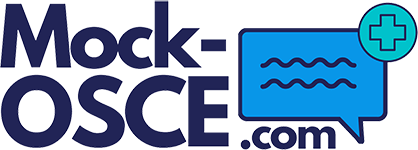Learn & Practice for OSCE Exams.
Register now and get FREE access to Skills in Medicine study material View Upcoming Exams
How it works.
Three Easy Steps
Step 1
Choose a date that suits you to take the Mock OSCE
Step 2
Log in and participate in the Mock OSCE on the day of the exam
Step 3
Receive your results and feedback on your performance
Upcoming Mock OSCEs
Filter Results
No Results Found


Register now and get FREE access to:
- Medical Study Material
- 14 Different Themes
- Easy-to-follow Diagrams and Text
- Over 400 Videos
Mock-OSCE on Instagram
This error message is only visible to WordPress admins
There has been a problem with your Instagram Feed.
Testimonials
The Mock-OSCE platform is a performance booster for every stage of career and will boost confidence, increase focus, and shine a light on clinical areas that need improvement. An excellent tool for OSCE Preparation!!! And the staff very kind and friendly. The experience was well worth the money!! I feel like I have friends in Ireland.
Avis T., United States
I am a doctor with various years of postgraduate experience. I need to sit several OSCE type of exams to further develop my professional career. I had the fortune to find Mock-OSCE.com. Even though it is focused more on medical students, I found the experience very enriching. Actors were outstanding, and gave great immediate feedback. The feedback breakdown that is sent after the mock exam is awesome. I would not doubt to recommend Mock-OSCE.com to any colleague.
Alejandro F., New Zealand
It was good to be able to practise history taking in an exam style mock OSCE!
Joy A., England
It was good practice and the feedback provided was helpful.
Tatiana M., Scotland
As a family doctor from Saudi Arabia, currently pursuing a PhD, I appreciated taking the Mock-OSCE exam to train and assess my English communication skills. The test was well-organised, challenging, and efficient. Examiners gave me feedback which was structured, safe, to the point and well received.
Akram A., Saudi Arabia
Great experience and extremely helpful.
Carol C., Australia
The power of the consult for diagnosis is sometimes considered as strong as sophisticated imaging and/or assays - Mock-OSCE is a fantastic tool to sharpen skills, get more out of consults, and ultimately build stronger relationships with patients.
K.S., United States
The feedback is especially helpful as it provides useful details of improvement.
S.R., Canada
